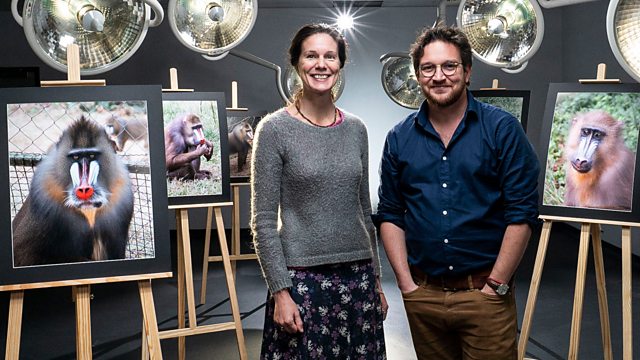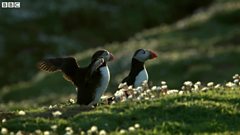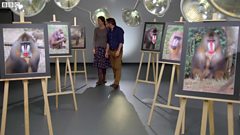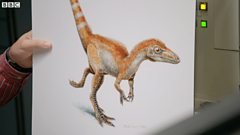
Communication
Professor Ben Garrod explores how skin has evolved remarkable ways to enable animals to communicate with each other, from vibrant displays of colour to skin pouches to amplify sound.
Why are male mandrill faces (big bold primates from West Africa) red and blue? How are birds' feathers so colourful? What do ringtail lemurs do to talk to one another? Their skin holds the key. As Professor Ben Garrod explores how animals communicate with one another, he uncovers a myriad more wonderful ways.
Skin has evolved in some remarkable ways to enable animals to communicate with each other, from vibrant displays of colour to skin pouches to amplify sound. Ben shows how animals have evolved to use skin to make themselves heard loud and clear. Birds are notable for their use of coloured feathers to attract mates, show status and as displays of aggression. But, as Ben discovers, long before birds evolved their unrivalled use of colour, it is now believed that their ancestors, the dinosaurs, could well have been using colour to communicate. Ben also uncovers how one species of fish communicates using electricity, and a common British bird has been secretly communicating for years, without us ever knowing.
Last on
More episodes
Previous
Next
Clips
-
![]()
Puffin beaks glow in the dark
Duration: 02:59
-
![]()
How mandrils use colour to communicate
Duration: 03:30
-
![]()
What colour were the dinosaurs?
Duration: 03:29
Credits
| Role | Contributor |
|---|---|
| Presenter | Ben Garrod |
| Series Producer | Reema Lorford |
| Executive Producer | Doug Mackay-Hope |
| Producer | Emma Fry |



